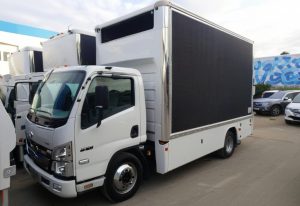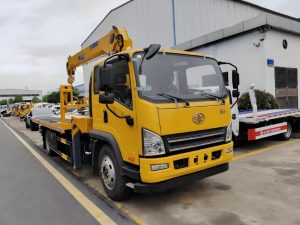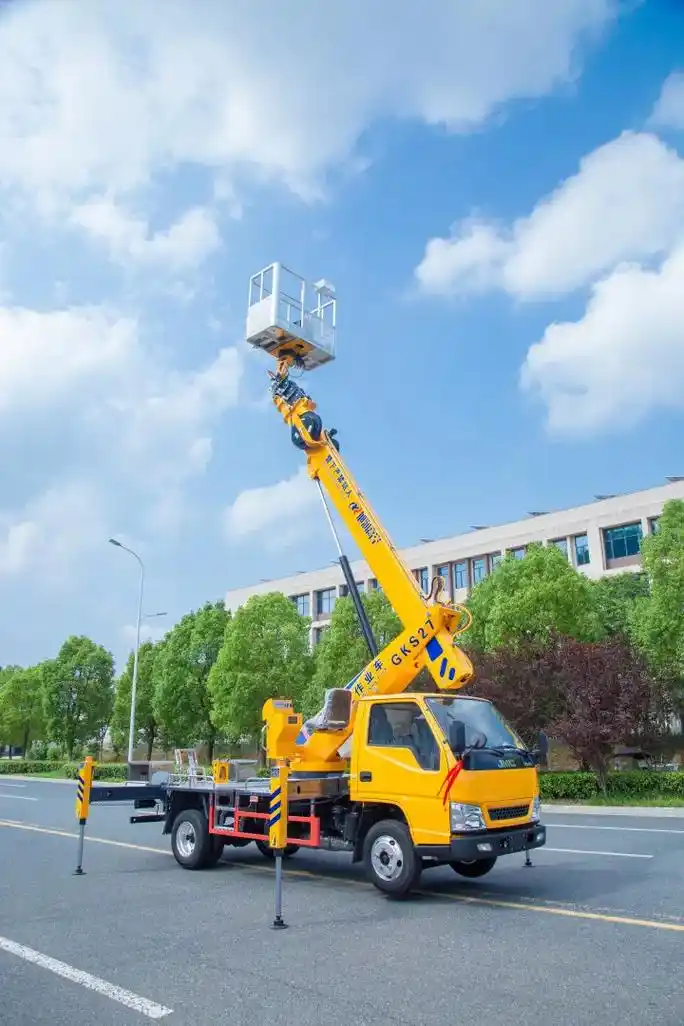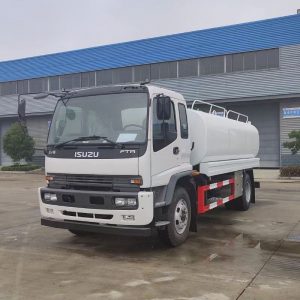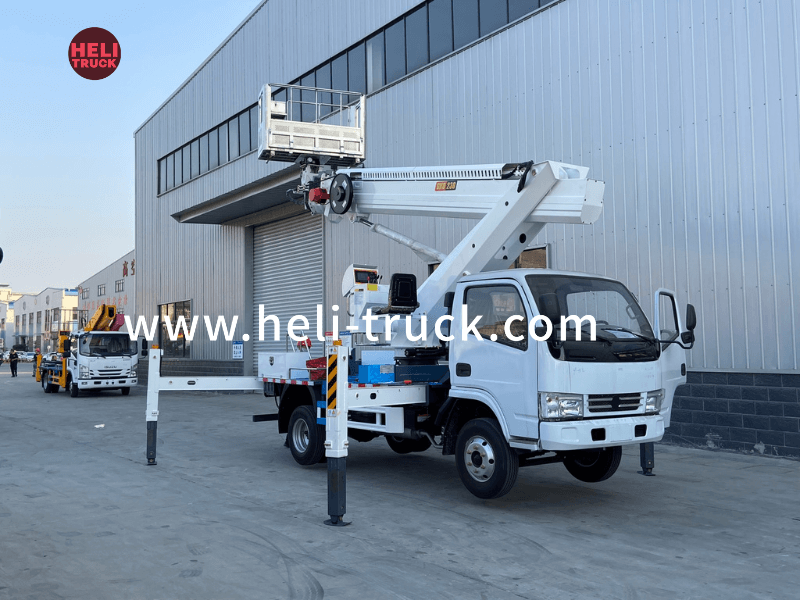
When it comes to getting the job done, nothing beats the versatility and power of a work truck. Whether you’re hauling heavy equipment to a construction site, delivering packages, or transporting tools, a work truck is an essential asset for many professionals. This comprehensive guide will walk you through everything you need to know about work trucks, from types and features to maintenance and future trends.
What is a Work Truck?
A work truck, also known as a commercial truck, is designed primarily for transporting goods, tools, and equipment necessary for various jobs and industries. Unlike regular consumer trucks, work trucks are built to endure heavy loads, tough terrains, and extensive usage. They come equipped with features that enhance their functionality and durability, making them indispensable for professionals across various fields.
Types of Work Trucks
Work trucks come in different shapes and sizes to suit various needs. Understanding the different types can help you choose the one that best fits your business requirements.
Pickup Trucks
Pickup trucks are perhaps the most versatile type of work truck, commonly used in industries ranging from construction to landscaping. They offer a spacious bed for hauling materials and a powerful engine for towing. Modern pickup trucks come with advanced features such as four-wheel drive, enhanced suspension systems, and high-tech cabins equipped with navigation and communication tools.
Cargo Vans
Ideal for delivery services and tradespeople like electricians and plumbers, cargo vans provide ample enclosed space to store tools and goods securely. These vans often come with customization options like shelving units and partition walls to keep your cargo organized and safe. The enclosed space also protects your goods from weather conditions and theft.
Box Trucks
Box trucks are perfect for larger deliveries and moving services, thanks to their large enclosed cargo area which protects goods from the elements. These trucks are commonly used by moving companies, retail businesses, and logistics firms. They offer easy loading and unloading through rear roll-up doors or side doors.
Flatbed Trucks
With an open bed design, flatbed trucks are excellent for transporting oversized items that wouldn’t fit in an enclosed space. They are commonly used in construction and agriculture industries for carrying heavy machinery, lumber, and other large materials. Flatbed trucks can be equipped with cranes or lift gates to facilitate loading and unloading.
Features to Consider in a Work Truck
Choosing the right work truck involves considering several critical features that impact its performance, efficiency, and suitability for your specific needs.
Payload Capacity
The payload capacity indicates how much weight a truck can carry in its bed or cargo area without compromising performance. It’s crucial to choose a truck with a payload capacity that meets your job requirements. Overloading a truck can lead to mechanical failures and safety hazards.
Towing Capacity
If your job involves towing trailers or heavy equipment, pay attention to the towing capacity of the truck. The towing capacity should be sufficient to handle the weight of your trailers and cargo without straining the engine or transmission.
Engine Power
A powerful engine ensures that the truck can handle heavy loads and challenging terrains without strain. Consider the engine’s horsepower and torque ratings when choosing a work truck. Diesel engines are often preferred for their superior torque and fuel efficiency.
Fuel Efficiency
Given the rising fuel costs, opting for a fuel-efficient model can save you significant money in the long run. Look for trucks with advanced fuel-saving technologies such as turbocharged engines, start-stop systems, and aerodynamic designs.
Customization Options
Customizing your work truck can enhance its functionality and safety. Various customization options are available to tailor the truck to your specific needs.
Storage Solutions
Adding custom storage solutions like toolboxes, shelving units, and ladder racks can help keep your tools organized and easily accessible. Proper storage solutions also prevent damage to your tools during transit.
Safety Features
Modern work trucks come with advanced safety features like backup cameras, lane departure warnings, automatic emergency braking systems, and blind-spot monitoring. These features can help prevent accidents and ensure the safety of both the driver and the cargo.
Technology Integration
From GPS navigation to Bluetooth connectivity, integrating technology can make your workday smoother and more efficient. Advanced telematics systems allow fleet managers to track vehicle location, monitor driver behavior, and optimize routes in real-time.
Benefits of Owning a Work Truck
There are several advantages to owning a work truck that make it a worthwhile investment for many businesses.
Versatility
Work trucks can be adapted to various tasks, making them incredibly versatile assets for any business. Whether you need to haul materials, tow equipment, or transport tools, a work truck can handle it all.
Durability
Built to withstand harsh conditions and heavy usage, work trucks are known for their durability. High-quality materials and robust construction ensure that these trucks can endure daily wear and tear while maintaining their performance.
Professional Image
A well-maintained work truck projects a professional image to your clients, enhancing your business reputation. It shows that you are serious about your work and have invested in reliable equipment to get the job done right.
Popular Brands and Models
Several brands have made a name for themselves in the work truck market by offering reliable, high-performance vehicles tailored to professional needs.
Ford F-Series
The Ford F-Series has been America’s best-selling truck for decades, known for its reliability and performance. The F-150 model is particularly popular among contractors and tradespeople for its robust capabilities and advanced features.
Chevrolet Silverado
Chevrolet’s Silverado offers robust performance and advanced features that make it a popular choice among professionals. The Silverado is available in various configurations to suit different job requirements, from light-duty tasks to heavy-duty hauling.
Ram Trucks
Ram trucks are celebrated for their luxurious interiors combined with powerful capabilities, making them ideal for both work and leisure. The Ram 1500 model is known for its smooth ride quality, advanced technology, and impressive towing capacity.
Maintenance Tips for Work Trucks
Regular maintenance ensures that your work truck remains in optimal condition, minimizing downtime and extending its lifespan.
Regular Servicing
Stick to a regular servicing schedule to catch potential issues before they become major problems. Regular servicing includes oil changes, filter replacements, brake inspections, and other routine checks recommended by the manufacturer.
Tire Care
Regularly check tire pressure and tread depth to ensure safe driving conditions. Properly inflated tires improve fuel efficiency and reduce wear on suspension components. Rotate tires regularly to ensure even wear.
Fluid Checks
Keep an eye on essential fluids like oil, coolant, brake fluid, transmission fluid, and power steering fluid to ensure your truck runs smoothly. Low or contaminated fluids can lead to mechanical failures and reduced performance.
How to Finance a Work Truck
Financing options can make purchasing a work truck more affordable by spreading the cost over time.
Leasing vs Buying
Leasing can be a cost-effective option if you prefer lower monthly payments and plan to upgrade frequently. Leasing also allows you to avoid the hassle of selling the vehicle at the end of its life cycle. On the other hand, buying gives you full ownership of the truck, allowing you to customize it as needed without restrictions.
Loan Options
Various loan options are available, including commercial vehicle loans tailored specifically for businesses. Compare interest rates, loan terms, and repayment options from different lenders to find the best deal for your financial situation.
Insurance Considerations
Insuring your work truck is crucial to protect your investment from unforeseen events such as accidents, theft, or damage.
Coverage Types
Consider comprehensive coverage that includes liability insurance (to cover damages you cause), collision insurance (to cover damages to your vehicle), cargo insurance (to cover goods being transported), and uninsured/underinsured motorist coverage (to protect against drivers with insufficient insurance).
Cost Factors
Insurance costs can vary based on factors like the truck’s value, usage patterns (e.g., long-distance hauling vs local deliveries), driver history (e.g., accident records), location (e.g., urban vs rural areas), and safety features installed on the vehicle.
Work Trucks for Specific Industries
Different industries have unique requirements when it comes to work trucks. Choosing the right type of truck can significantly impact productivity and efficiency.
Construction
Construction companies often require trucks with high payload capacities and rugged durability. Pickup trucks with off-road capabilities are popular choices due to their ability to navigate construction sites with ease.
Landscaping
Landscaping professionals benefit from trucks with ample storage space for tools, plants, soil, mulch, etc., as well as towing capabilities for hauling trailers loaded with equipment like lawnmowers or excavators.
Delivery Services
For delivery services like courier companies or online retailers’ last-mile deliveries (e.g., Amazon Prime), cargo vans or box trucks with secure storage compartments are ideal since they protect goods during transit while offering easy access through side/rear doors.
Environmental Impact of Work Trucks
It’s important to consider the environmental impact of your work truck choices due to increasing concerns about climate change & pollution levels globally:
Fuel Consumption
Opting for fuel-efficient models can reduce operational costs & carbon footprint over time by consuming less fossil fuels per mile driven compared traditional gasoline/diesel-powered engines alone
Emission Standards
Ensure compliance emission standards set regulatory bodies (e.g., EPA Euro 6) minimize harmful pollutants released atmosphere promote cleaner air quality overall
Future Trends in Work Trucks
The future of work trucks is exciting with innovations on horizon aimed improving efficiency sustainability safety:
Electric Work Trucks
Electric work trucks promise lower operational costs reduced environmental impact compared conventional internal combustion engine (ICE) counterparts advancements battery technology charging infrastructure continue evolve rapidly
Autonomous Features
Advancements autonomous driving technology could soon make self-driving work trucks reality improving efficiency safety reducing human error potential accidents on roads
Choosing Right Work Truck for Your Business
Selecting right work truck involves evaluating specific needs budget long-term goals consider factors like load requirements terrain conditions frequency use before making final decision ensure investment aligns business objectives
Common Mistakes Avoid When Buying Work Truck
Avoid common pitfalls such overlooking total cost ownership neglecting future scalability needs failing consider customization options enhance productivity satisfaction levels:
- Not considering total cost ownership including maintenance insurance fuel costs
- Ignoring potential future growth requiring larger/more capable vehicle later
- Overlooking customization options improve efficiency convenience
- Focusing solely upfront price without considering long-term value durability resale potential
By avoiding these mistakes ensuring thorough evaluation process selecting right vehicle tailored specific needs maximize benefits investment ultimately contribute success business operations
In conclusion investing right work truck involves careful consideration various factors ranging types features customization options financing maintenance insurance environmental impact future trends selecting right vehicle tailored specific needs maximize benefits investment contribute success operations ensuring reliable durable professional image clients customers alike
FAQs
- What is average lifespan of work truck?
- The average lifespan of well-maintained work truck typically around 200000 miles more depending usage conditions regular maintenance practices followed throughout its life cycle ensuring longevity reliability
- Can I convert personal pickup into functional work truck?
- Yes appropriate modifications such adding toolboxes racks partitions custom storage solutions possible convert personal pickup into functional efficient work vehicle meeting job requirements
- Are electric work trucks reliable suitable heavy-duty tasks?
- Yes electric work trucks becoming increasingly reliable suitable heavy-duty tasks advancements battery technology motor efficiency range capabilities infrastructure development continue improve rapidly addressing concerns related power range availability charging stations
- How often should service maintain my work truck optimal performance?
- It’s advisable service maintain every 5000 7000 miles recommended manufacturer guidelines ensuring regular checks vital components fluids tires brakes suspension system prevent potential issues prolong lifespan vehicle
- What key considerations when choosing between leasing buying new work truck?
- Key considerations include initial costs monthly payments long-term ownership plans frequency upgrades intended usage customization flexibility financial situation preferences weighing pros cons both leasing buying make informed decision aligned business objectives


